Why Is a Unicorn Called a Unicorn?
A unicorn is a legendary mythical creature with a single horn in the middle of its forehead. But why is a unicorn called a unicorn? Why is it not called a ‘unihorn’? Where did the name unicorn come from; from which language and from which part of the World?
If you want to know the answers to all these questions, keep reading. We will discuss the origin of the term “unicorn” from all perspectives. We also have a good explanation for why the magical one-horned horse is not known as ‘unihorn’.
Where Did the Name Unicorn Come from?
The unicorn is known for its single horn, which is said to have healing powers. In the Middle Ages, the unicorn horn was often called alicorn. People used to drink from alicorns to prevent poison and sickness. In reality, these “unicorn horns” were usually made of narwhal tusk.

Considering that the horn is what makes the unicorn so famous, it is not surprising that the magical creature was named after its horn. The word unicorn means “one horn”.
The name of this magical creature comes from Latin. It combines the Latin word ūnus, which means “one”, and cornu, which means “horn”.
The Natural History of the Term “Unicorn”
However, the term ‘unicorn’ originally comes from the Greek word monokerōs, which also means “one horned”. The unicorn myth in Europe originates from the ancient Greeks in the first place.
As we learned in our post on the origin of the unicorn myth, Ctesias wrote about Indian wild asses in 5th century BCE. According to Ctesias, these horned animals had a single black horn, which was 1.5 feet long. These wild asses already had the white body associated with the magical single horned white horse known as the unicorn today.
This strange creature is the first description of a unicorn in Europe. This unicorn-like animal probably mixes four real animals; the Indian rhinoceros, the Tibetan antelope, the Tibetan wild ass and the Tibetan wild yak.
Why Is a Unicorn Not Called a Unihorn?
Some people are asking why the unicorn is not called a ‘unihorn’ instead of ‘unicorn’. Both words ‘horn’ and ‘corn’ have the same Indo-European roots, but ‘corn’ is based on Latin, while the word ‘horn’ has Germanic roots.
As we learned earlier on this post, the Latin words ūnus and cornu are the base of the word ‘unicorn’. It makes sense, that Romance languages, which are based on Latin, have names for unicorn based on the Latin language. For example, unicorn in Spanish is unicornio, and in Italian it is unicorno. As Italian and Spanish are Romance languages based on Latin, it logical that most of their words are based on Latin.
However, English is a Germanic language and not a Romance language, so shouldn’t the English word for ‘unicorn’ use the Germanic word ‘horn’ instead of ‘corn’? Not really, because the ‘uni’ in unicorn also has Latin roots and not Germanic. The whole word ‘unicorn’ was adopted to English from the French word unicorne, which is based on Latin.
Besides, the word ‘corn’ appears in some other English words too, for example ‘cornucopia’ and ‘cornet’.
Related: View over 100 of the best unicorn names
When Did the Word “Unicorn” Become Common in English Language?
So, the history of the unicorn in Europe began as early as 5th century BCE, and the mythical creature was known even earlier in other parts of the World.
However, it took a while until the unicorn was translated into English language. This happened in the Middle Ages, in 13th century, when the word ‘unicorn’ was adopted from French.
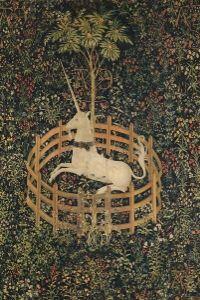
In the Middle Ages, the unicorn myth was already established, although the medieval unicorn was often portrayed more like a one-horned bearded goat than a magical horse with a horn. But the myth of the unicorn purifying water and healing sickness was already well-known.
The legend was mixed up with the stories of the Bible, and soon the unicorn was an allegory of the Christ, and could only be tamed by a virgin (an allegory of Virgin Mary).
The Term “Unicorn” Has a Long History
Hopefully this post has clarified why a unicorn is called a unicorn. The English term is adopted from the French word unicorne, which is based on Latin. It wasn’t until the 1200’s, when the word ‘unicorn’ appeared in English language.
However, Ctesias was the first European to use the word ‘unicorn’. As Ctesias was Greek, the word ‘unicorn’ originally comes from the Greek word monokerōs, which means one-horned.
Is ‘unicorn’ a good name for the beloved mythical creature in your opinion? If not, what would you name the unicorn and why? Please share your thoughts in the comment section below!

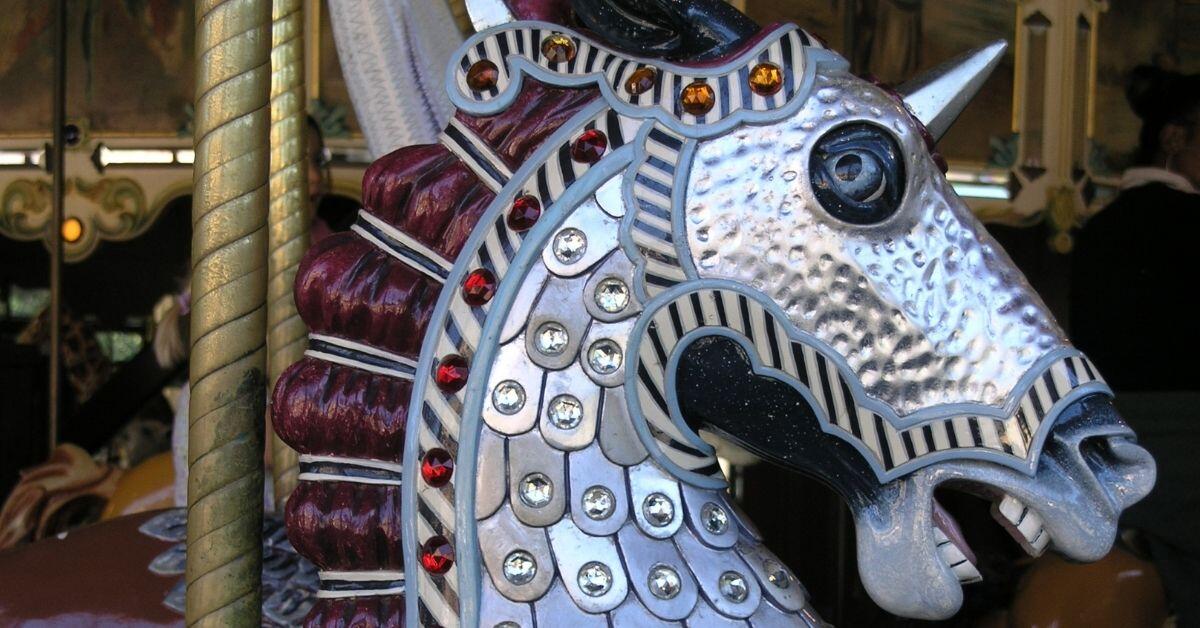
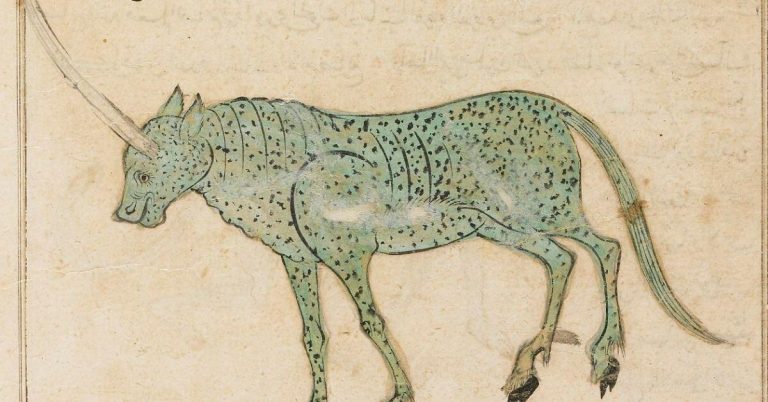
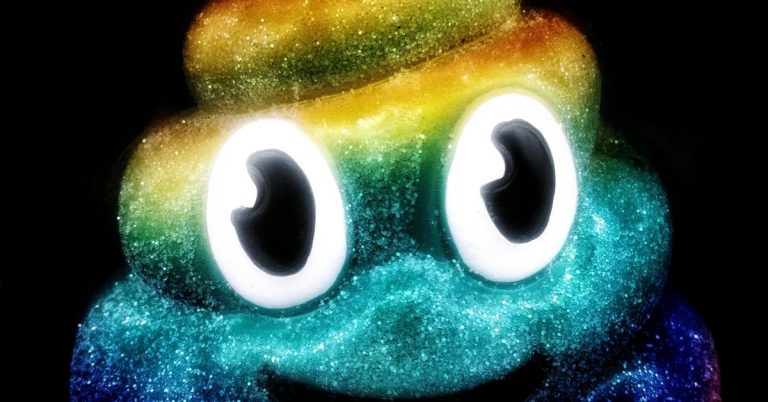


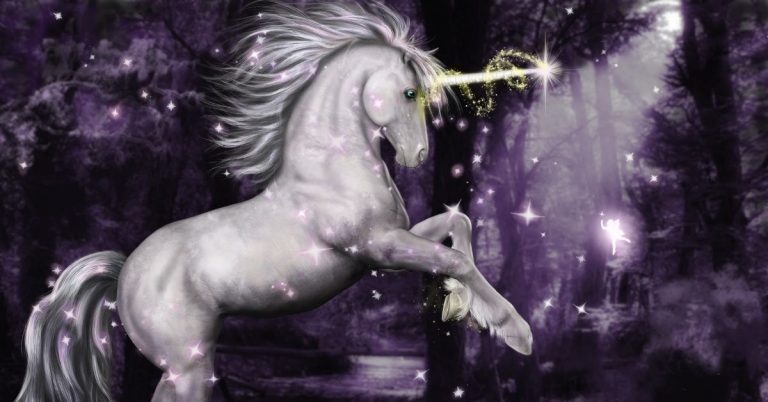
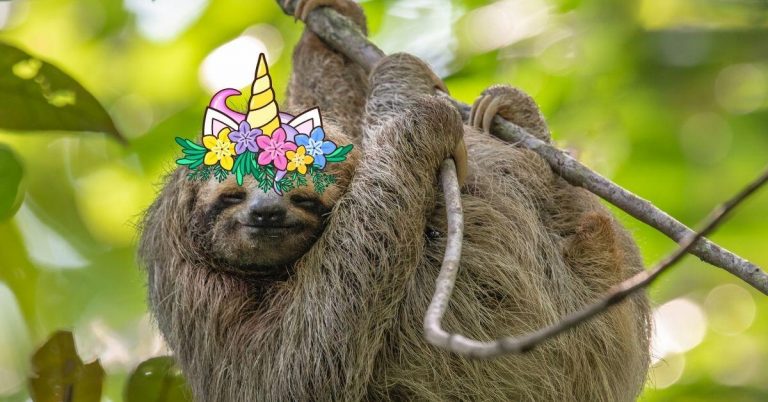
I always wondered why unicorn and not unihorn. My daughter always sighs when doing English assignments. She complains of the mixtures of Latin, Germanic, and many origins of convoluted words formed. She said that’s why foreigners have a hard time learning English. My parents and relatives being immigrants never really mastered English. I grew up speaking three languages, my parents envied that children could learn so easily. Language should be UNI-versal or we evolve like unicorns and understand all languages. 🦄❤️
I think English is a relatively easy language compared to many others. Of course, there are some oddities, such as the word ‘unicorn’. 🦄 Thank you for sharing your thoughts on the topic!